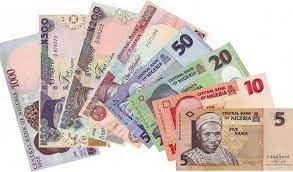By Charles Abuede
- Market analysts say they expect to see a muted outing in domestic bonds as investors wait on the sideline ahead of the first auction of the year
-
Rates expected to trend lower from liquidity mop-up this week with exchange rates remaining in range-bound at the official market and the I&E window.
Foreign Exchange Market: In the domestic currency market, forex investors traded actively in the week as the naira depreciated by N3 to close at N475 to the United States dollar at the parallel market. Also, the activity level in the Importers’ & Exporters’ window surged by 180.7 per cent to $396.3 million from $141.2 million recorded in the previous week as the Naira weakened by N1.20 to N394.67 for the greenback. The domestic currency traded flat at the CBN spot market at N379 against the dollar. In terms of turnover, the FX market turned active (+99.9%) in the I&E from a soft session last week to an average of $82.6 million from $35.3 million in the prior session.
Also, the total value of open contracts of the naira at the FMDQ Securities Exchange (SE) FX Futures Contract Market increased 1.6 per cent ($132.5 million) to $8.3 billion. The NOV 2021 instrument (contract price: N430.72) received the highest subscription of $32.1 million which took total value to $278.7 million. On the other hand, the SEPT 2021 instrument (contract price: N424.86) recorded the least subscription worth $2.2 million with a total value of $219.1 million.
Money Market: In the secondary T-bills market, there was a bearish outing as the average rate rose 12 basis points week on week to 0.5 per cent. Investors sold-off the 182 and 364- day instruments resulting in rates advancing 12 basis points and 25 basis points respectively while the 91-day instrument saw moderate demand as yield dropped 2 basis points.
In the money market last week, there was a lacklustre performance across the T-bills segment as the OBB and OVN rates opened the week at 2.5 per cent and 3.3 per cent respectively from last week’s close of 8.0 per cent and 9.3 per cent despite a decline in system liquidity to N134.7 billion. On Wednesday, OBB and OVN rates lowered to 1.5 per cent and 2.0 per cent respectively as system liquidity rose to N446.8 billion following OMO maturity worth N211.3bn from the previous day. By the close of the week, OBB and OVN rates printed at 0.5 per cent and 1.0 per cent respectively as system liquidity settled at N402.9 billion.
The CBN conducted T-bills sales worth N107.2 billion on Wednesday, N125.1 billion lower than the amount on offer. Demand was high across board with bid-to-cover ratio of 1.8x, 1.2x and 1.2x for the 91, 182 and 364-day instruments respectively. There was an increase in stop rates at 0.5 per cent, 1.0 per cent and 1.5 per cent (vs 0.04%, 0.5% and 1.2% in the previous auction) for the 91-day, 182-day and 364-day instruments respectively.
Bond market: The domestic bond market ended the week with poor performance as average yield rose 17 basis points week on week to 6.6 per cent. However, yield declined marginally on Monday (1bp) and Friday (2bps) but increase in yield from Tuesday through Thursday dragged performance. Across tenors, the short-term bond saw the most demand as yield dropped 13 basis points while the yield on medium and long-term bonds climbed 8 basis points and 48 basis points week on week respectively.
Across the SSA Eurobonds space, demand remained weak leading to a bearish outing as average yield rose 24 basis points from the last week to 7.7 per cent. The Ghana and Zambia 2022 instruments saw the most sell-offs as yield rose 281 basis points and 195 basis points from last week respectively. Conversely, yield on the Nigerian 2021 and Ghanaian 2023 instruments fell 530 basis points and 4 basis points week on week respectively.
Performance at the African Corporate Eurobonds market was also weak as average yield increased 52 basis points week on week to 5.2 per cent. The ESKOM HOLDINGS 2021 instrument was the major loser following a 111 basis points rise in yield. On the flip side, the ESKOM HOLDINGS 2025 and FIDELITY 2022 instruments saw high demand which pushed yield higher by 40 basis points and 26 basis points respectively.









